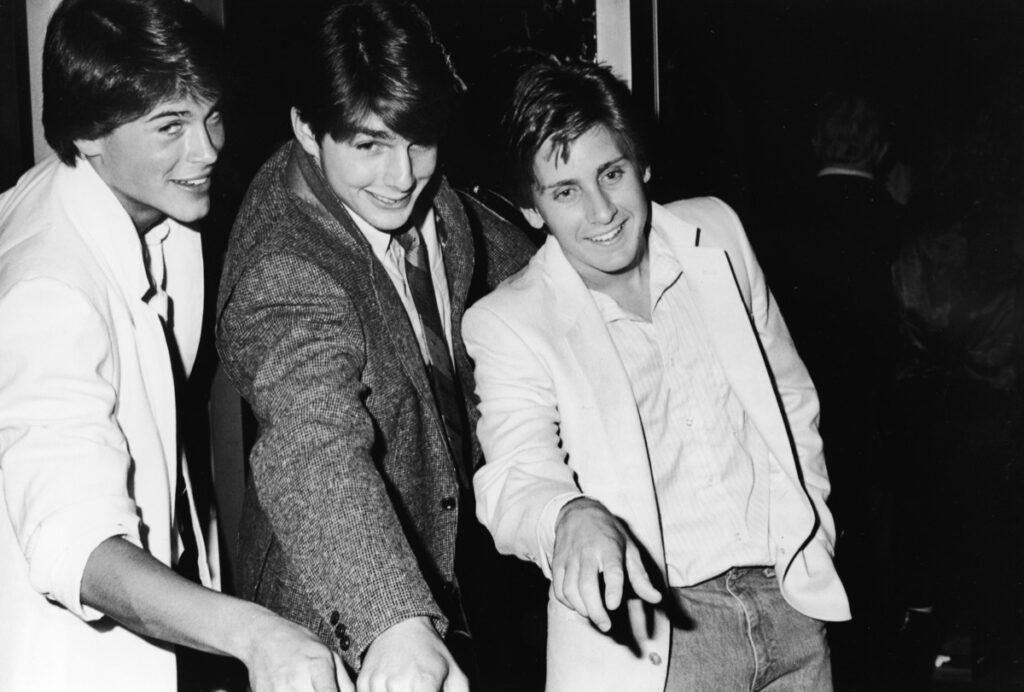Andrew McCarthy is one of the most iconic actors to come of age in the ’80s, thanks in no small part to his starring turns in soon-to-be generation-defining classics including St. Elmo’s Fire, Pretty in Pink, and Less Than Zero. But he also skyrocketed to notoriety by virtue of being branded, along with his co-stars in many of those films, as one of the “Brat Pack,” an up-and-coming group of young actors. But while the Brat Pack moniker may still be in use today, when it was first coined, McCarthy was none too happy about it—and neither were his colleagues. Keep reading to learn why he said the members of the Brat Pack hated the term back in the ’80s and how he feels about it today.
RELATED: Michael Douglas Yelled at Her on Set Until She Cried, Former Child Actor Said.
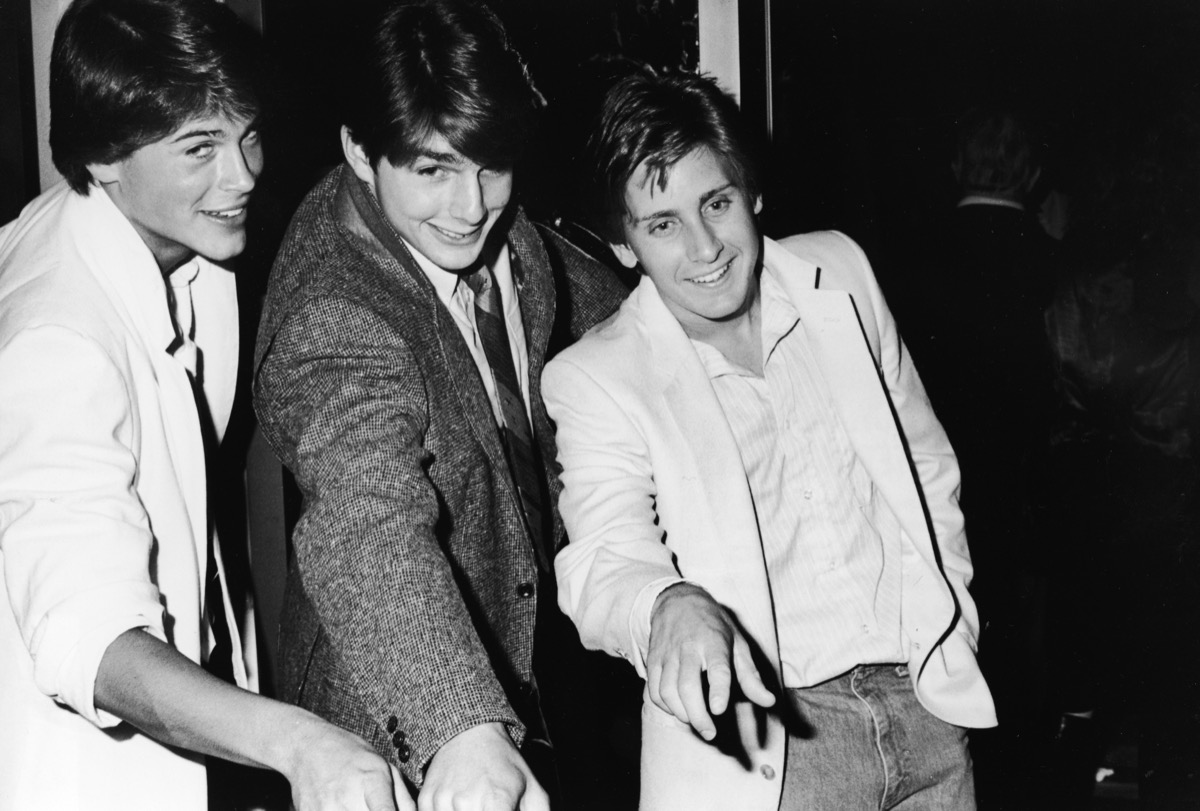
The term “Brat Pack” is credited to writer David Blum, who first used it in a cover story for New York Magazine about Emilio Estevez published in June 1985. Blum used to to classify the group of ubiquitous young stars that included Estevez, Judd Nelson, and Rob Lowe, citing their flashy lives spent at nightclubs, courting fans and hangers-on.
“This is the Hollywood ‘Brat Pack,'” Blum wrote. “It is to the 1980s what the Rat Pack was to the 1960s—a roving band of famous young stars on the prowl for parties, women, and a good time. And just like Frank Sinatra, Dean Martin, Peter Lawford, and Sammy Davis Jr., these guys work together, too—they’ve carried their friendships over from life into the movies.”
The article names 1981’s Taps as the first Brat Pack movie and Estevez as their “unofficial president.” Other named members—”Everyone in Hollywood differs over who belongs to the Brat Pack,” Blum noted—include Timothy Hutton (“the only one with an Oscar”), Matt Dillon (“the one least likely to replace Marlon Brando“), Nicolas Cage (“the ethnic chair”), Sean Penn (“the most gifted of them all”), and Tom Cruise (“the hottest of them all”).
For his part, McCarthy is barely mentioned in the piece, quoted only briefly about St. Elmo’s Fire. And yet it was enough to paint him with the same brush: As described by Blum, the Brat Packers were career-obsessed and fame-focused (and, he felt compelled to point out, none of them were college graduates).
RELATED: 6 ’80s TV Shows That Would Never Be Made Today.
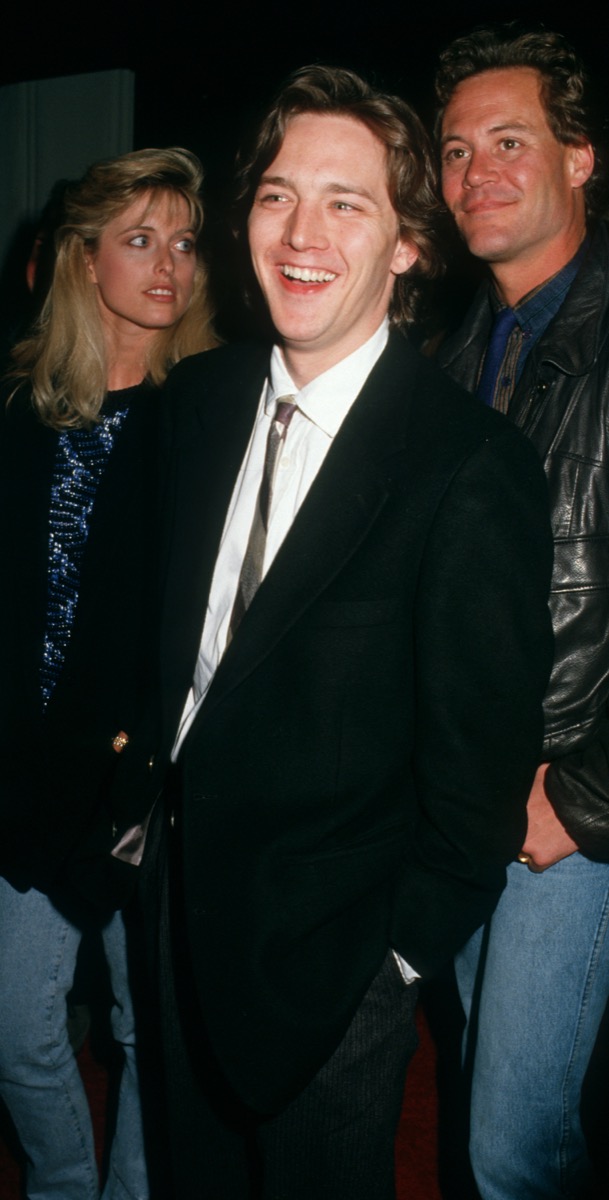

Looking back on the Brat Pack phenomenon from the vantage point of 2023, McCarthy told Inside of You podcast host Michael Rosenbaum earlier this year about the negative effect it had on his career.
“You forget now, the Brat Pack is this wonderfully iconic term spoken with reverence and affection for this moment in pop culture. It’s looked at [through] these rose-colored memories. That was not the case at the time,” McCarthy said. “[Blum] wrote this scathing article….It was a really negative, pejorative thing, and we [expletive] hated it. We thought, ‘who wants to be called a brat and who wants to be in a pack? It hugely adversely affected our careers … because we were now perceived as this.”
McCarthy went on to describe his very personal response to the label and how it clashed with his own burgeoning sense of himself and his career.
“All you ever want in life is to be seen,” he told Rosenbaum. “The instant the Brat Pack label came out…we were members of the Brat Pack. Martin Scorsese’s not going to call anyone in the Brat Pack! And he never did.”
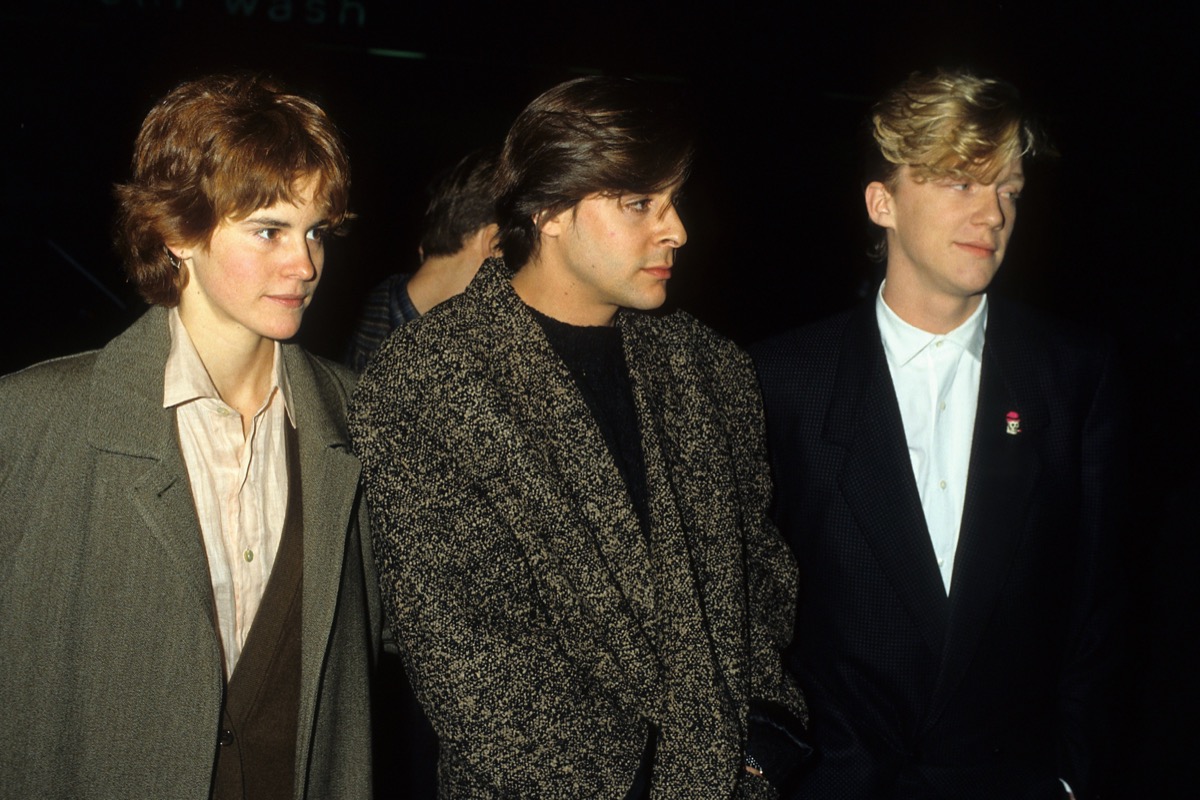

McCarthy was hardly the only person associated with the Brat Pack who resented what the title did to their career. Estevez’s response, for one, was negative from the jump, at least according to Blum. Reflecting on the 15th anniversary of the article’s publication for People, the writer recalled, “Emilio called me up and said, ‘You’ve ruined my life.'”
Ally Sheedy, who was in both St. Elmo’s Fire and The Breakfast Club, blamed it for stunting her career. “It immediately started this terrible association with us, that we were these kids who had too much, too fast,” Sheedy told Interview in 1998, as quoted by People.
Even the late director John Hughes, who helmed iconic Brat Pack films including The Breakfast Club and Pretty in Pink, resented how his stable of young stars were being talked about. In a 1987 interview in Seventeen Magazine, conducted by Brat Packer Molly Ringwald, the filmmaker made his feelings clear.
“I think that this clever moniker was slapped on these young actors, and I think it’s unfair. It’s a label,” Hughes said. “The young actors get hit harder because of their age. Because ‘Rat Pack,’ which Brat Pack is clearly a parody of, was not negative. ‘Brat Pack’ is. It suggests unruly, arrogant young people, and that description isn’t true of these people. And the label has been stuck on people who never even spoke to the reporter who coined it. To label somebody that! It’s harmful to people’s careers.”
RELATED: Christina Applegate Dumped Brad Pitt Mid-Date for Another Star in the ’80s.
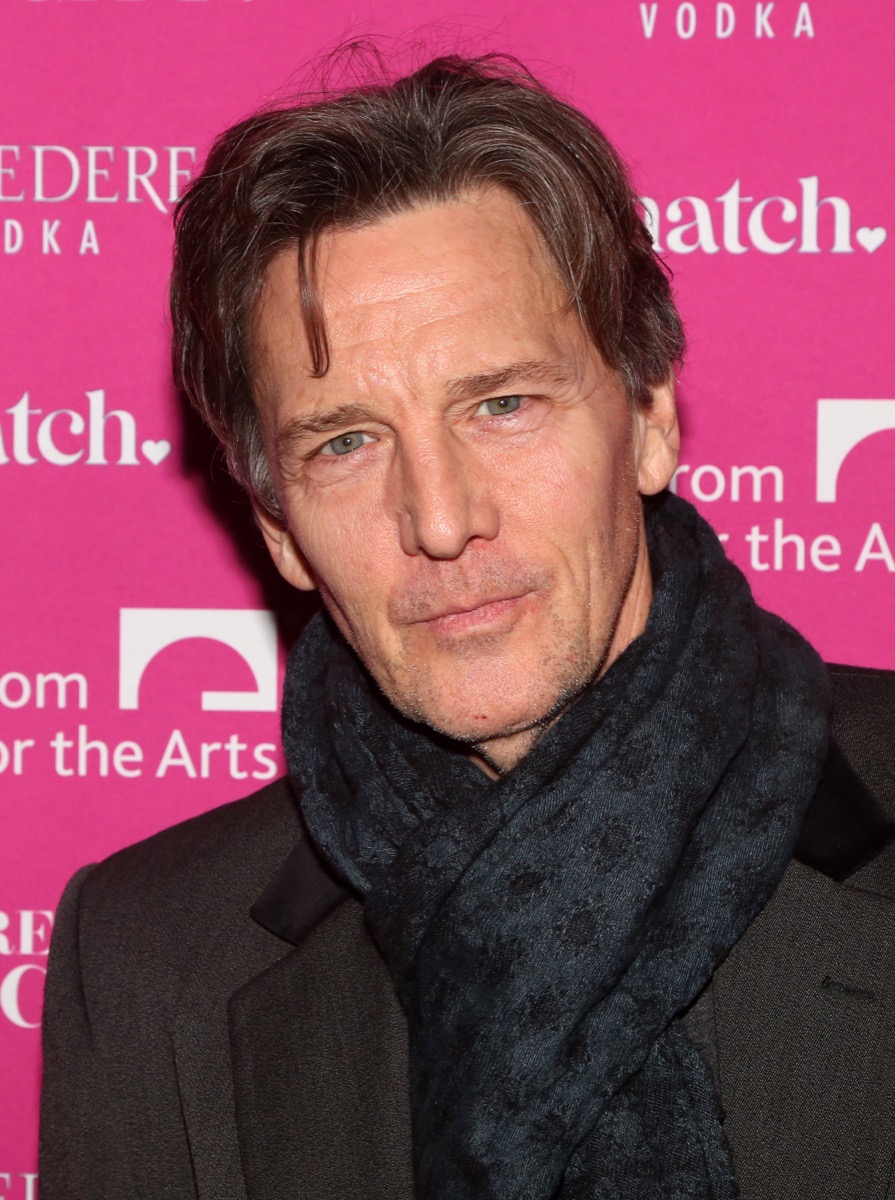

McCarthy resented and resisted being lumped in with the Brat Pack for years, even telling People in 1999 that he was never even “really” a part of the fabled clique. “The media made up this sort of tribe,” he said. “I don’t think I’ve seen any of these people since we finished St. Elmo’s Fire. And I’ve never met Anthony Michael Hall.”
But in recent years, he’s grown to appreciate being a part of a moment in time that is very important to millions of former ’80s teens. He’s even making a documentary about the whole phenomenon, which grew out of his 2021 memoir Brat: An ’80s Story. Speaking to Salon in May 2023, while in production on the movie, McCarthy, now 61, was able to look back with clearer eyes.
“It was a life changer for me,” he said. “It’s taken me decades to come to terms with it and see it as a beautiful thing. I’m the avatar of a certain generation’s youth, as are the other actors.”
For more celebrity news sent right to your inbox, sign up for our daily newsletter.

